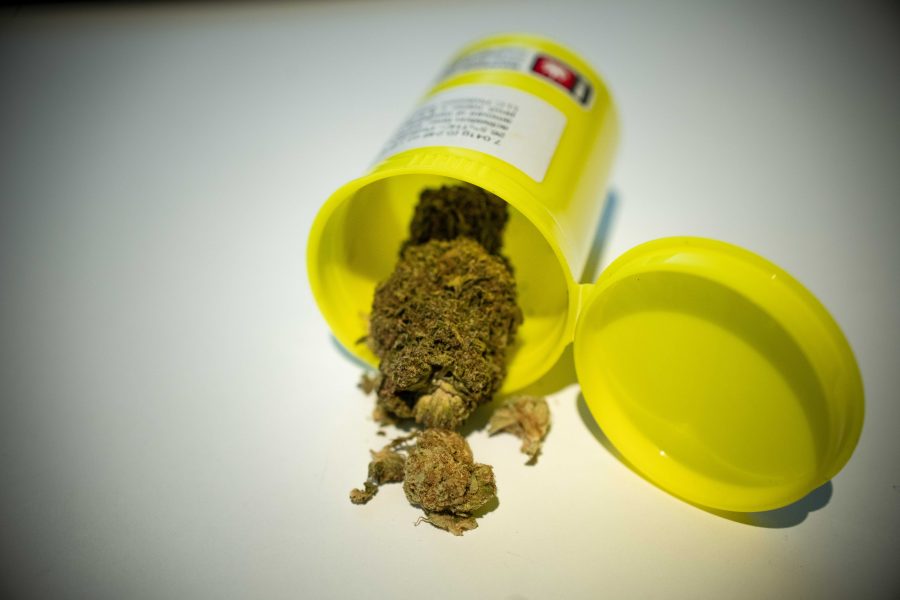House Bill 3001, a bill drafted as a replacement for Proposition 2 for the legalization of medical cannabis, passed the Utah House during a special session with 60 votes in favor and 13 opposed. After being sent to the Senate, the bill passed with 21 to 4 majority. Debate on the bill largely followed party lines in both chambers.
The bill has been dubbed a “compromise bill” by means of referencing a closed-door consultation that occurred on Oct. 4 between some Republican lawmakers, clergymen from the Church of Jesus Christ of Latter-Day Saints as well as a couple of the special interest groups who were major players in support of the proposition.
The bill’s hearing in both chambers heard democratic members lamenting the closed nature of the compromise meeting. During the house reading, however, the bill’s sponsor and Utah Speaker of the House, Greg Hughes R-Draper cited the many public hearings as evidence of a democratic process.
Hughes called prop 2 a “mighty effort,” but suggested that voters may not have completely weighed out the “pros and cons” of the proposition when casting their vote.
A motion to substitute HB 3001, made by Rep. Rebecca Chavez-Houck D-Salt Lake City, failed by a margin of 61-12. The substitution would have maintained proposition 2 as is save for technical changes suggested by legal counsel — in order to comply with state and federal law.
Proponents in favor of Chavez’ substitution cited the “voice of the people” calling members of the house to look at the full gallery where constituents sat. A loud burst of laughter from the gallery later interrupted Rep. Paul Ray, R-Clearfield after he claimed Chavez’ substitution would allow for the “commingling” of fentanyl with marijuana and suggested her substitution be titled the “Cartel Transportation Act.”
Rep. Brain King D-Salt Lake City spoke on the perceived role of the LDS church when he addressed what he described as “the 800-pound gorilla” in the room. King stated that he does not believe that the LDS church dictates the actions of legislators. He went on to say that if any legislators were to base their decision on the ideologies of the church, they should have no business filling roles as legislators.
Concern was expressed by some representatives with regards to specific portions of HB 3001. Areas of concern included the removal of autoimmune disorders from the maladies treatable by medical cannabis, age restrictions (for those of 18 years of age but under 21) as well as the reduced number of providers that would be allowed in the bill as compared with the proposition. In answer to concerns, Hughes referred to the Compassionate Use Board, instituted by the bill to address autoimmune disorders not covered by the legislation as well as exceptions to the age limit. Some representatives, however, expressed concern that the waiting period for approval with a board — that only meets quarterly — would be too extensive.
Similar concerns were brought up by some Utah senators after the bill passed the house and moved to the Senate. All substitutions and amendments to the bill failed to pass in both chambers. Sen. Jim Dabakis, D-Salt Lake City motioned for two different substitutions before voting against the bill.
Senator Jani Iwamoto D-Salt Lake City referenced the many young people who had participated in the ballot initiative process and expressed a desire for their voices to be heard. Canvassers for the ballot initiative — which later became Prop 2 — were present on the U campus throughout the spring semester, engaging with students and collecting signatures for the initiative.
Brock Colman, a freshman studying pre-med at the U, stated that while he fully supports the medical use of cannabis he is “concerned about the effects a community would suffer if cannabis were to be used for purposes other than those prescribed by qualified medical professionals.”
Martha Ma Black, who attended the house reading of HB 3001 as well as some of the previous public session, felt that the bill is “a slap in the face” and a “complete disregard of what the people want in the state of Utah.”
Black stated she was particularly frustrated with Hughes’ comments referencing “Cheech and Chong” brought up in “[the] reading as well as during last Monday’s special session.” With regards to Ray’s cartel comparison, she stated that it came “from a place of complete ignorance” and that “in reality when you legalize a plant like this you are taking power from them [cartels].”
Black stated that as a previous member of the LDS church, she has no issue with the freedom of religion. However, she felt that the division of church and state was not being respected in this case. “It really bothers me that we are opening a special house session with a prayer,” Black said, referring to the opening session of the house hearing when, a prayer that ended with “in the name of Jesus Christ, amen,” was offered by Rep. Kay Christofferson, R-Lehi.


